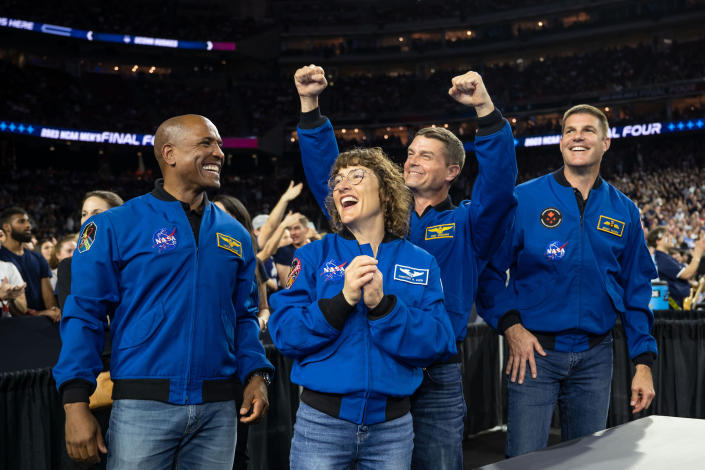Black astronaut says lunar mission will be ‘major accomplishment’ in American history

Views (252)

Victor Glover is part of a four-member crew that will orbit the moon in NASA’s Artemis II mission, scheduled for November 2024.
Throughout his career in the Navy, pilot Victor Glover has taken part in many exhilarating missions, but his next one will dwarf them all — he will be flying in outer space.
One unique aspect Glover looks forward to, he said, is flying the spaceship by hand and spending 10 days with his crew.
“To see the Earth from the vantage point of the moon with that crew is going to be pretty special,” Glover said.
Glover spoke to NBC News about preparing for this historic mission, potential challenges his crew may face and the impact diversity has in space exploration. This interview has been edited for length and clarity.
NBC News: Artemis II is the first moon mission since 1972. How has the training process changed for a mission to the moon in 2023 versus back then in 1972?
This mission is very similar to the Apollo 8 mission. The difference is this crew is made up of an international partnership between the U.S. and Canada. And our Artemis missions will continue to be an international partnership, as well as a public-private partnership. Partnership is going to be an increasing part of how we explore space, the moon and eventually onto Mars for the foreseeable future.
NBC News: Are there any risks that the crew is concerned with for this upcoming mission? If so, what is your crew doing to prepare for potential challenges?
Glover: Human spaceflight is dangerous. It is risky. We put a lot of time in trying to understand that risk. We don’t talk about the risks enough. So, that can make it seem jarring when something goes wrong. When it launches, [the rocket] will weigh five and a half million pounds. It’ll produce eight and a half million pounds of thrust. It’ll be controlled, but that’s enough to rip apart most things that are made by human hands. Human spaceflight is inherently about trust and teamwork. Every single person needs to know how important what they’re doing is.
NBC News: How are you preparing yourself mentally and physically for this mission?
Glover: The training is a piece of it. That practice gives you an emotional preparation. If things start to go wrong, you’ve seen something like it before. Definitely before I go fly in a spacecraft, I also will pray. And that’s a part of how I prepare my family. My family knows I’m going to work hard and work with this crew, and we’re going to do our best. But they also are aware that there are things outside of our control. And so it’s nice to know that we can pray and go to God and put our concerns out there and know that they’ll be heard by someone. So, we pray as a family and we step out on faith.
NBC News: You will be the first Black man in this historic space crew participating in a moon mission in NASA’s 60-year history. Is there more room for diversity in space and if so, what impact would this have on space exploration?
Glover: We know that when designing or developing something, having diverse perspectives and an engaged team working on things is the best way to get a product developed or improved. Diversity isn’t just about having more skin shades or more genders. It’s about bringing in the talent of the whole team. Our country is wonderfully diverse and that’s what has made America such a resilient and robust country and economy and civilization and society. So, the fact that our astronaut corps now, instead of looking like one slice of our society, it looks like our society — that is a sign of improvement, but also a reminder that we have to continue to do that kind of work and be intentional about that. I’m honored to be in this position but also this position is so much smaller than what’s really happening at large. This mission is the next major moonshot, the next major accomplishment in our American story. When we can explore by all people, for all people, it helps everyone to feel they’re connected to that story — and that, to me, is big.
NBC News: What discoveries does the crew hope to make while on this mission and what impact will this information have on society and space exploration in the future?
0 Likes
